Reduce, Reuse and Recycle is the 3 ‘Rs’ mantra that has been heard around the world over the past decade. But even before the Malaysian Government officially launched a national campaign to promote these well-founded principals they were being implemented on the island of Langkawi. In fact a number of hotels new and old have embraced this philosophy of going green in Langkawi. By rethinking how to approach new development, as well as applying sound economic strategy, these Langkawi hotels have become leaders in a new way of thinking and the results are impressive.
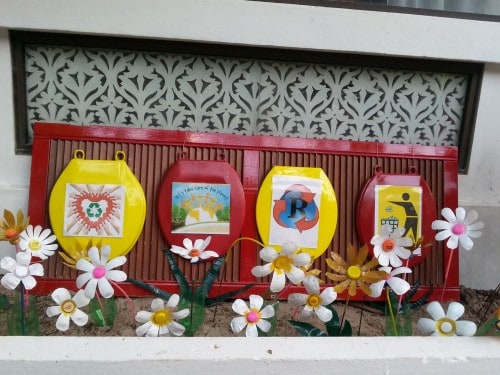
REDUCE
With the application of reducing the consumption of raw materials, manufactured materials and energy, several hotels in Pantai Cenang have built 3-star and better resorts with minimal environmental impact. Casa Fina Fine Homes and The Cabin constructed their chalets using simple steel framed structures with sheet metal roofing materials and simple metal or timber cladding. Because the chalets are each self contained and lightweight they require only a minimum of simple concrete block footings for support.
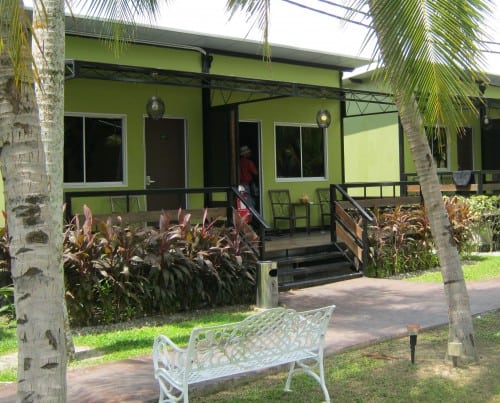
This eliminates the need for large scale foundations, some of which need to be dug deep into the beach sand strata, thereby inhibiting the natural filtering process that a beach provides for run off water that often contains human and animal waste, organic parasites and inorganic metals and composites. Beach sand filtration helps to keep the coastal waters clean.
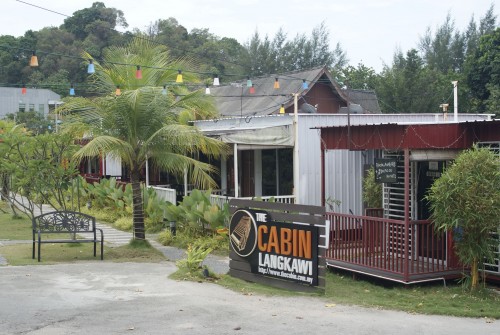
REUSE
One of the most valuable resources that are required for basic human life is water. More precious than gold, this finite resource of fresh water has been contested and fought over by civilizations for centuries. So reusing water is not a new concept. It has been implemented for centuries. But with the modern development of large municipal water systems these technologies have slowly been forgotten. With the world’s expanding population, and the depletion of global fresh water supplies, the need to conserve water on a large scale is just as important today as it was centuries and even a millennium ago.
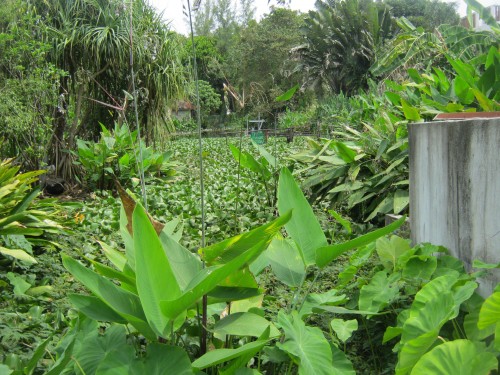
The Frangipani Resort in Pantai Tengah has developed a natural water filtration system that removes waste particulates and bacteria from the used water using a series of wetland pools planted with various plants known to remove specific wastes and toxins, naturally. The black and gray water is piped into ground-based cisterns. But this where the system differs from it neighbors. Rather than the wastewater slowly seeping through the beach sand and eventually out to sea, the black and gray water are then pumped into the top pond of the natural wetlands behind the main buildings of the resort. This is where the series of water plants take over.
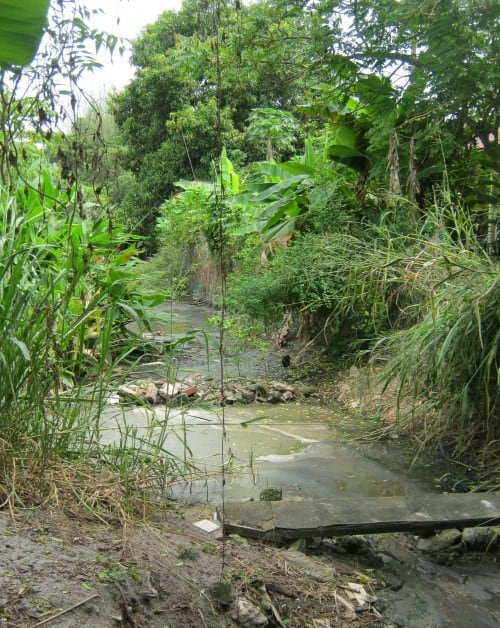
As the wastewater moves from one end of the wetlands to the other the plants absorb the water and process the contaminants. The end result is that the water in the downstream end of the wetlands is clean and safe. The Frangipani has an independent laboratory test the water in the final phase area of the wetlands every 2 months. Records are kept to ensure that any change in the level of toxins and contaminants is quickly noticed and the system ‘corrected’.
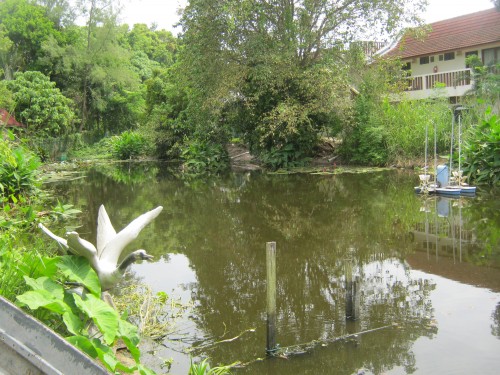
The Frangipani also goes a step further in reusing its water. Rain runoff is collected in a series of large tanks and used to keep the gardens and grounds green. Gray water that filters into the large ponds can also be used to flush toilets and for watering gardens.
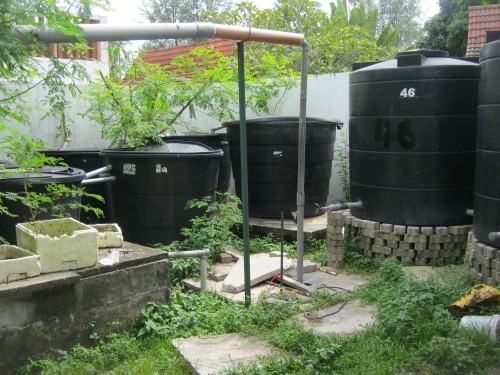
The Frangipani also promotes recycling by its guests. There are the familiar recycle bins placed in convenient locations around the resort grounds. There are bins for glass, paper, plastic and organic rubbish. Composting organic materials also takes place at this truly ‘green’ resort reducing even more the amount of rubbish that is sent to the island’s landfill.
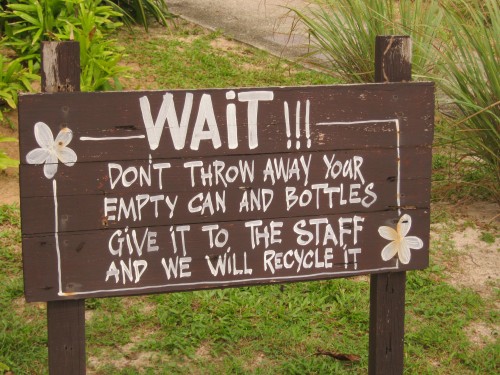
RECYCLE
For most of us when we think about recycling we think about cans, bottles, newspapers, etc. However recycling can be applied on a much larger scale such as the materials used for building a resort. The Ocean Residence in Bukit Benggali and Tubotel at the Cenang Quay are two excellent examples of putting recycled materials to work in a new way.
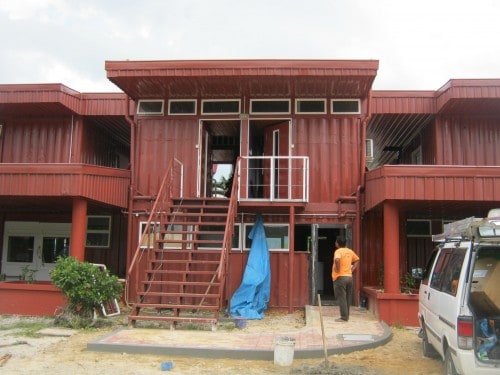
The Ocean Residence was the former offices and laboratories of Paul Penders Cosmetics. Paul had envisioned building with used sea freight containers when he lived in the San Francisco Bay Area in the US. However it was not until he relocated his operations to Langkawi that his vision became a reality. He purchased used ‘B’ class 40’ shipping containers that were then modified and configured into, originally the offices and now, a series of top class residences. Again this style of construction not only reused containers destined to rust in a yard somewhere but minimized environmental impact by reducing consumed materials and the need for massive foundations required for a similar venue constructed of concrete.
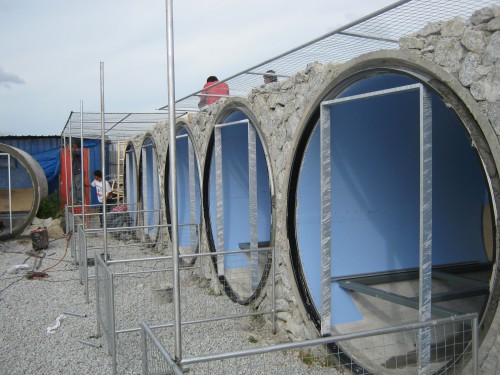
Tubotel, a more recent addition to the Langkawi hotel scene, used an ingenious construction method, first applied in Austria, using recycled and surplus 2.5-meter sewer pipes to construct individual Tube rooms. The pipes require a minimal footing and are quick and easy to install. The Tubes keep naturally cool due to the thick concrete walls and almost constant sea breeze, thereby reducing electrical consumption. Tubotel also uses seawater as opposed to fresh water in its Jacuzzi’s again reducing the amount of consumption of the finite potable water sources available on the island.
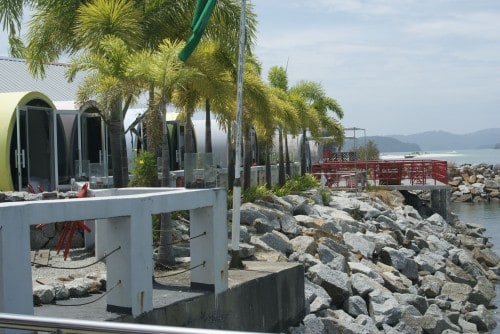
Reduce, Reuse and Recycle is a world mantra that will help to lead the 21st century into a sustainable environmental future. As the need for resource conservation becomes more critical the economic factors are becoming favorable for developments, new and old, and individual residences to embrace the 3 ‘Rs’. Many new developments are incorporating gray water reuse, materials recycling, alternative construction techniques and reduced materials and energy consumption that will lead us into a greener future.
Can you recommend other hotels and resorts in Malaysia that embrace the 3 Rs?
We’d love to hear about them!

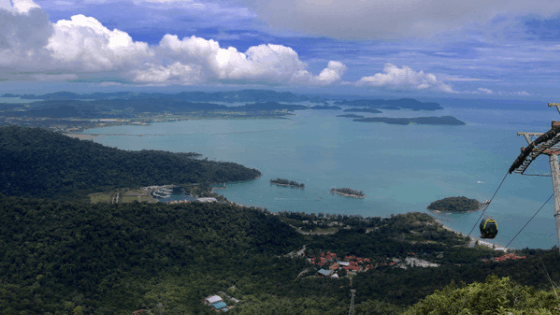
Leave a Reply